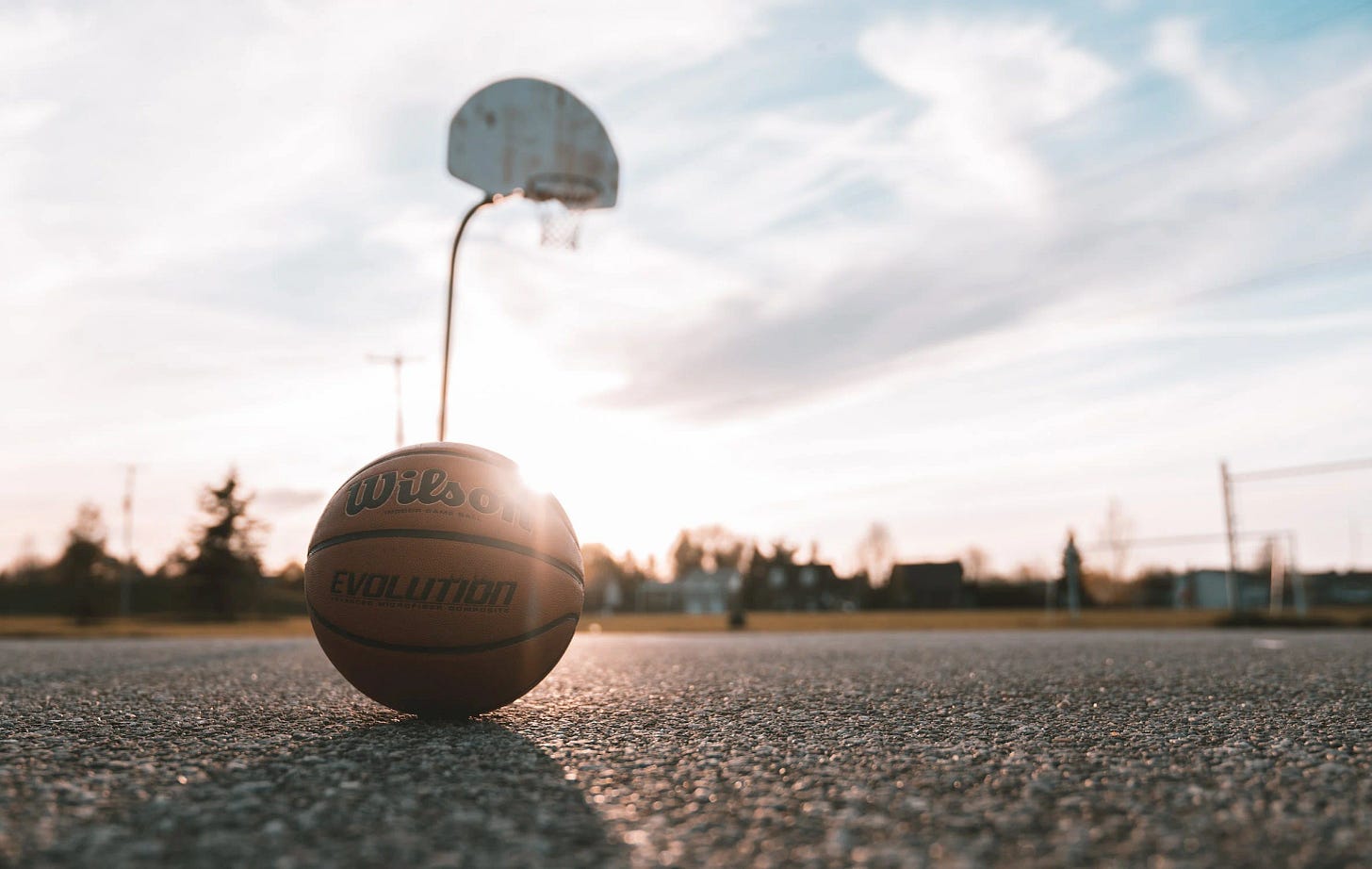I’m left-handed and could never go right.
This was a challenge for me as a 6-1” 15 year-old who played some basketball.
I was at an age when a coach might see your potential and say, “We want you on the team.”
I was at summer camp when a coach named Ron Rothstein saw something in me.
Ron is a basketball legend. You may know him as the former head coach for the Miami Heat in the 1990s.
When I met Ron he was Chuck Daly’s long-time assistant for the Detroit Pistons.
Ron saw my game and said, “Kid, you don’t go right, let’s double-down on left.”
That was it. A laser-quick assessment and solution. And zero time wasted on having me spend a lot of time and work on going right.
I remember at the time feeling incredibly liberated. Every other coach would spend hours on my, mediocre at best, “right” skills.
Ron did the opposite. He told me to just concentrate and perfect going left. He said, “Make your left a weapon and the right will come.”
So that’s what I did. I double-downed on left, took the pressure off going right, and my hoop game was so much the better for it.
I see this same scenario in business all the time. There’s a talented creative, for example, who is great with the work and not-so-great with the people. Maybe they are an introvert, too. And then, after some success with the work, we promote them to creative director and demand that they become this gregarious, loquacious leader.
In other words, we’re asking a great practitioner to “go right.”
We’re tasking a great player with taking on coaching responsibilities.
Maybe we should double-down on the player’s left and focus on what they are really good at.
What if instead we created a growth track for practitioners that honors what they do naturally and best and paid them accordingly?
Does every art director have to become a creative director with management responsibilities to grow and be successful?
On the flip-side, I know that a “lefty” can develop the skills to go right.
And a lot of these management skills can be taught, learned and developed. Especially if the practitioner is willing.
Personally, I was a word-person, an English major and a copywriter. But over time, I beefed up my math skills. I learned how to read a P&L. And then combined my left and right brain to see “the story” behind the numbers.
But before we start coaching to overcome deficits, what if we started to unabashedly and whole-heartedly leaned into people’s strengths?
What are your natural strengths?
And if you are a manager or leader, what natural strengths do you see in your people? What can you have them double-down on?
Hey, it’s worth a shot.





Love this post. Just read a couple of books about Alfred Adler, a contemporary of Freud who believed that human beings gathered together in "societies" because we were weak alone but it wasn't just the herding. Animals herd. Humans are the only species on the planet that performs "division of labor". Adler believes that EVERY JOB in society is just as important as all the others. And we should celebrate all people as being a part of the whole. Nobody can do it all. :) (The books are called The Courage To Be Disliked and The Courage To Be Happy and i recommend them highly.)
For years, I held the belief that in advertising, the moment you'd succeed at something, you'd get promoted to a position where you could fail. Though I may not use the same phrasing now, I still maintain that the example you present in this post is spot on. Those who know me are aware that I have experienced the challenges faced by being in those AD and CD (even CCO) athlete shoes. For much of my career, I lacked guidance in navigating these roles, but once I found a coach, I saw improvement in all aspects of my work. While I don't make every shot I take, my average score has improved significantly by focusing on my strengths, such as my ability to identify the right ideas and my knack for bringing teams and clients together to pull it off. As for me, I'm committed to continually honing my skills, even those that require more effort, as I believe the skills-learning game is never done. As for my people, I ask them to double down on accepting ours is a team sport that's about 'we', not me.